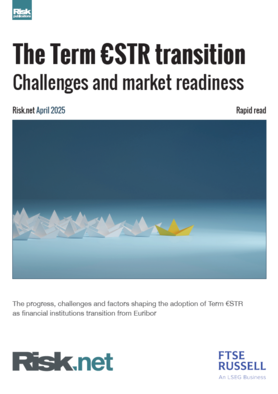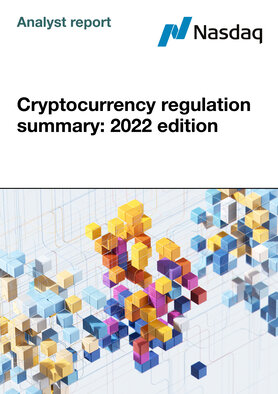A wealth manager’s guide to investor cash deployment
Sitting on excess cash can be the most costly investment decision your clients make. An investor with a moderate risk portfolio in a globally diverse multi-asset-class ‘optimum’ portfolio, can expect to see returns over cash of between 4-5% per year. However, merely disclosing such stats moves next to nobody to move out of cash and into the markets. Because the reasons people stay in cash are behavioural, the tools to help them get comfortable enough to invest must be too.
In this guide you will learn about:
- The most important reasons clients don’t invest as much as they could (and should)
- The behavioural principles behind turning discomfort and disinterest into engagement
Ten techniques to encourage your clients to increase their investments with comfort and confidence
Download the whitepaper
Register for free access to hundreds of resources. Already registered? Sign in here.
More related resources
The Term €STR transition: challenges and market readiness
The progress, challenges and factors shaping the adoption of Term €STR as financial institutions transition from Euribor

Future-ready markets: turning data challenges into opportunities
This white paper explores data management modernisation, enabling firms to stay relevant and future-proof success.

Market infrastructure modernisation: defining your strategy to prepare for the next wave of change
An insider’s perspective: keys to modernisation success

Cryptocurrency regulation summary: 2022 edition
An analyst report summarising global regulatory guidelines surrounding the trading and issuing of crypto assets around the world

To cloud or not to cloud: factors influencing decision-making at banks
In a new research report, Audrey Costabile Blater of Aite-Novarica’s Capital Markets team shares notable findings from her one-on-one interviews with key stakeholders across the financial services sector uncovering what’s driving – or holding back – cloud migration decisions for trading and risk management functions

